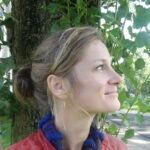THE INVOLVED INSTITUTIONS
Lycée Privé Technique Professionnel en Agriculture Agroforesterie Agroalimentaire Energies renouvelables et Elevage LPTP 3AE.
This college offers practical training courses in the field of agricultural production in Ouagadougou, capital of Burkina Faso. The school has the following training focus:
- Agriculture: All work related to sustainable crop production, agricultural technique, irrigation, soil fertilization, pest and deceases, seed improvement.
- Agro forestry: Subjects related to tropical forest ecosystems, relation to climate change and biodiversity.
- Agri-entrepreneurship: Exploitation of opportunities in the field of business in agriculture, set up and management of farms.
- Breeding: Breeding techniques for animal production, hen, goat, beef, pig, beekeeping, fish farming.
- Renewable energy: Technical solutions of producing energy from theoretically unlimited sources or resources, solar energy for agricultural water pumping.
BACKGROUND: Food and Nutrition security in Burkina Faso
The horticultural sector of Burkina Faso is very much undercapitalized with little use of inputs or agricultural equipment. The vast majority of market gardeners use hand tools to produce small quantities of market garden produce. Women account for one quarter of plot managers and most producers are young and illiterate. Production is organized informally. Government support is rare because production is scattered over a multitude of small locations around small reservoirs, rivers and in lowlands.
TRAINING NEEDS AND OBJECTIVE
Training in horticulture is needed professionalize the sector, which is a provider of jobs and a source of income for the populations, in particular young people.
Important training topics are: improving soil fertility management to get high productivity, integrated water management by increasing infiltration level of access water, reducing quantity of water using drip irrigation, improved locally available seeds, integration of livestock and vegetable production, and small-scale mechanization.
The project focuses on four main output areas in forms of 4 training weeks:
- Sustainable and regenerative agriculture
- Introduction to climate smart agriculture (CSA)
- Post-harvest management
- Entrepreneurship and agribusiness
RELEVANT SUSTAINABLE DEVELOPMENT GOALS
End hunger, achieve food security and improved nutrition and promote sustainable agriculture (SDG 2 Zero Hunger). The Long-term impact is defined as follows:
- End all forms of malnutrition;
- Promote agricultural growth;
- Ecologically sustainable food systems.
The following medium-term impact will contribute to this:
- Education system (TVET/HE) is of good quality, relevant and accessible (SDG 4);
- Partnerships between persons and organisations are inclusive and sustainable (SDG17);
CLIENT
Funded by the Dutch Ministry of Foreign Affairs and managed by Nuffic, as part of the Orange Knowledge Programme, project number OKP-TMT-23-00092.
REQUESTING PARTY AND PARTNERS
CONSORTIUM PARTNERS Q-POINT
DURATION
July 2023 until June 2024




